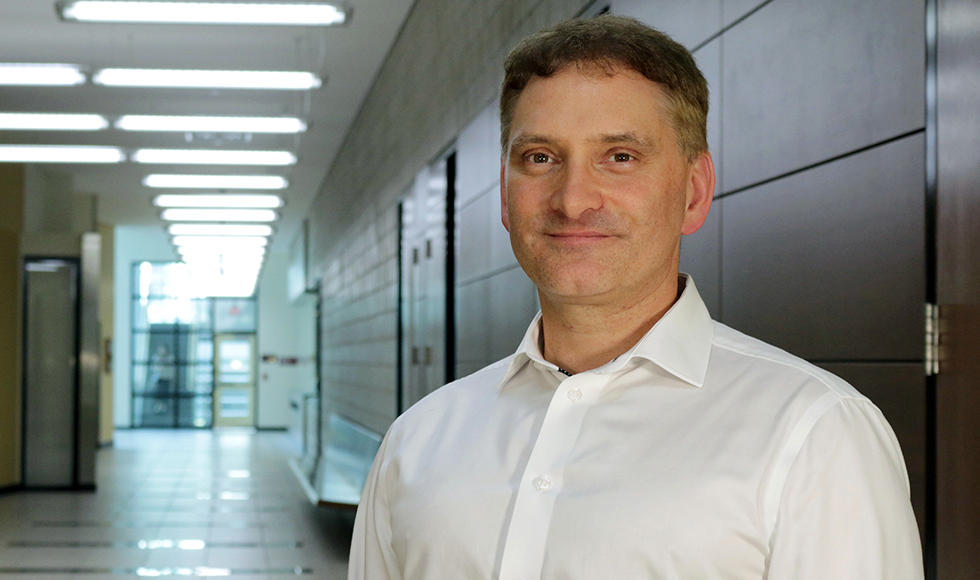Younger Canadians more likely to try recreational cannabis

Jason Busse is associate director of the Michael G. DeGroote Centre for Medicinal Cannabis Research at McMaster. Photo by Tina Depko.
BY Tina Depko, Health Sciences
July 31, 2019
Nearly 1 in 5 Canadians may try cannabis or increase consumption of the drug after legalization for recreational use, according to research from McMaster.
Those more likely to do so are younger in age, have used cannabis in the past three months, have a higher income, and self-report their mental health as poor or fair.
This conclusion comes from an analysis by McMaster researchers of the 2018 National Cannabis Survey conducted by Statistics Canada.
The results were published in Canadian Medical Association Journal (CMAJ) Open.
“We wanted to take a closer look at the survey data to identify trends on who is more likely to try or use more recreational cannabis,” said Jason Busse, senior author, associate professor in the Department of Anesthesia, and associate director of the Michael G. DeGroote Centre for Medicinal Cannabis Research at McMaster. “It is important to understand if legalization results in greater use of cannabis.”
Based on more than 17,000 respondents who provided complete data for the Statistics Canada survey, researchers used a weighted analysis to represent nearly 28 million Canadians aged 15 and older. The data used in the study was collected from February to September 2018, before legalization of recreational cannabis in Canada in October 2018.
An estimated 12 per cent of respondents indicated they intended to try cannabis, and six per cent intended to increase their cannabis use, following legalization.
Being more likely to try or increase cannabis use was associated with:
- those younger in age, with those aged 15 to 24 being almost four times more likely to do so than those over age 65;
- those who had used cannabis in the past three months were more than three times as likely versus those that had not;
- those with a higher income of $80,000 or more were 1.5 times more likely compared to those earning less than $40,000;
- and those reporting poor or fair mental health were twice as likely versus those reporting good to excellent mental health.
Busse said that while intention may not translate into behaviour, continued monitoring can help establish rates and patterns of recreational cannabis use among Canadians after legalization.
“Clinicians, public health officials and policy-makers should pay special attention to these higher risk populations to ensure informed decision making and responsible use,” he said.
Funding for the study came from the Social Sciences and Humanities Research Council (SSHRC), the Canadian Institutes of Health Research (CIHR), Statistics Canada and McMaster.
Read the paper here: http://cmajopen.ca/content/7/2/E399.full.


